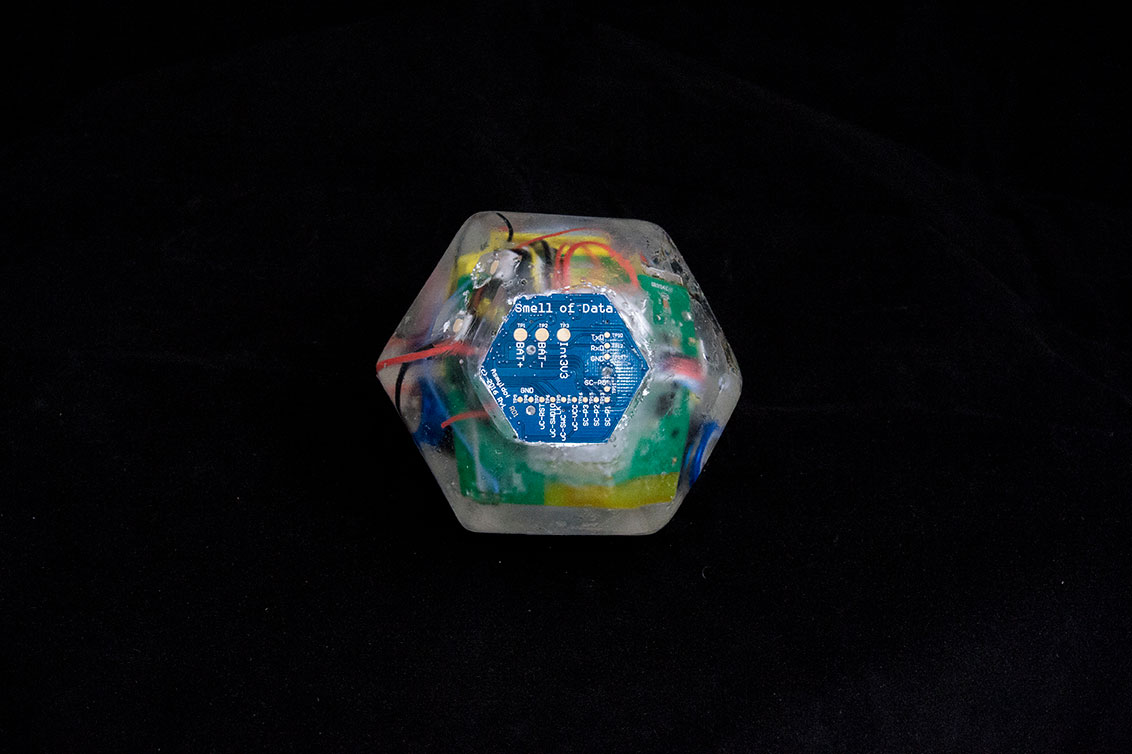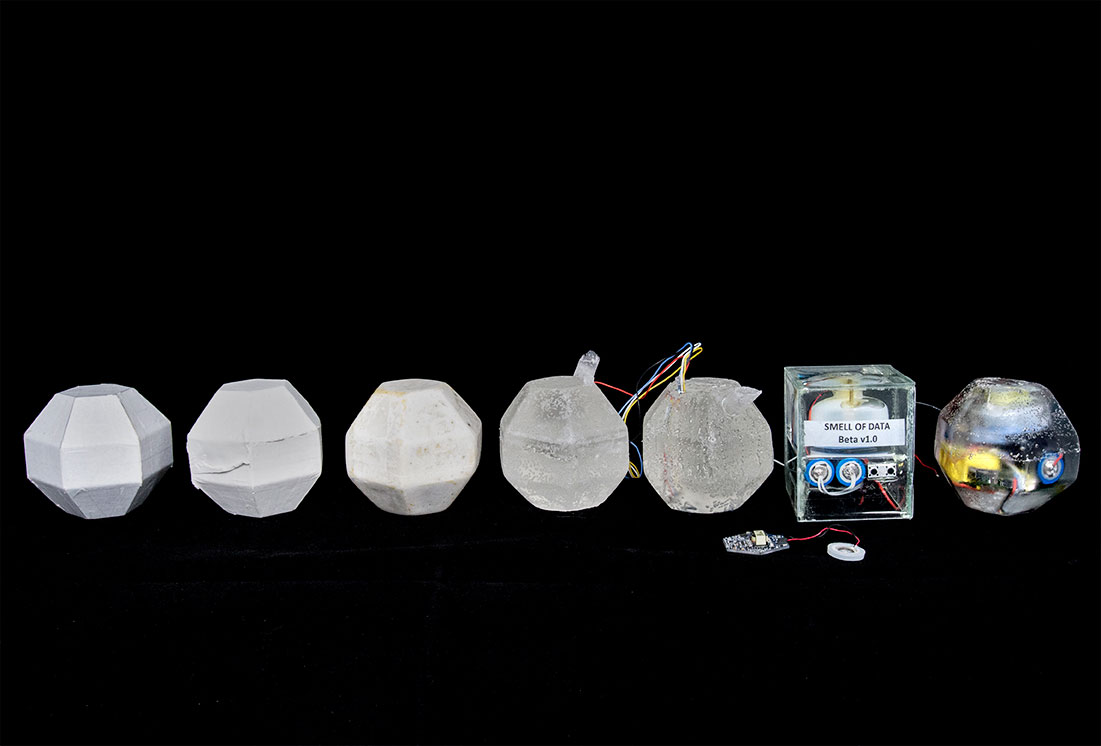


The sense of smell helped early humans to survive. But now that our hunting and gathering has moved to the digital environment, our noses can no longer warn us of the lurking dangers in the online wilderness.
The Smell of Data is a new scent created to instinctively alert internet users of data leaks on personal devices.
A project by Leanne Wijnsma and Froukje Tan.
Learning from gas
In 1937, as a result of an unnoticed gas leak, a huge explosion occurred at the New London School in Texas, killing 295 students and teachers. After this tragic accident, the government decided to add a smell to scentless gasses to make leaks more readily detectable and to prevent similar tragedies. Since then, the number of explosions involving gas have dropped immensely.
Sensing leaks
Gas has no smell. Data has no smell. As recent privacy violation incidents show, data leaks can have serious consequences. That is why we developed the Smell of Data to warn Internet users of data leaks.
Association
Smell is directly hardwired to the brain and it can call up action almost instantaneously. When the Smell of Data is associated with data leakage it will be able to function as a warning mechanism.

How to use
the Smell
of Data?

1. Scent dispenser
Charge the Scent dispenser with the Smell of Data.
2. Connect
Connect your smartphone, tablet or computer to the Scent dispenser via WiFi.
3. Data leaks
The Smell of Data recognises when you visit an unprotected website on an unsecured WiFi network or Hotspot.
4. Warning signal
The Scent dispenser will release a puff of the Smell of Data as a warning signal.
5. Protect yourself
Prevent your data from leaking, use the tips to protect you and your data.
Please note: The Smell of Data won’t secure your data for you. It is an alert mechanism for a more instinctive Internet.
Credits
Concept: Leanne Wijnsma, Froukje Tan
Smell: Leanne Wijnsma, ScentAir
Code: Jip de Beer
Scent dispenser prototype: Robert van Leeuwen
Design: Leanne Wijnsma
Camera: Froukje Tan, Leanne Wijnsma
Photography: Simone C. Niquille
Editing: Kristen Scharold
Website: Kris Borgerink
The code is released under Creative Commons: Github.
For the smell, contact Leanne Wijnsma.
Please contact us with ideas, code or future applications.
Amsterdam, 2024.
The Smell of Data is made possible by
And is currently supported by and further developed in collaboration with











